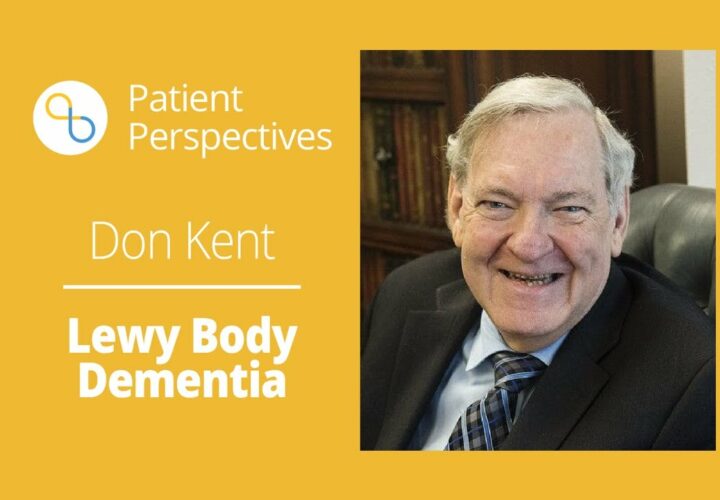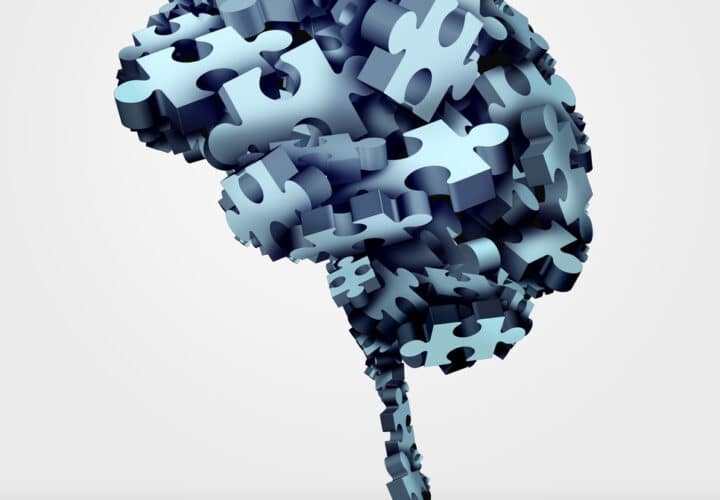Melissa J. Armstrong, associate professor of neurology at the University of Floria, discusses the early signs of Lewy body dementia and the importance of receiving an accurate diagnosis.
Lewy body dementia was highlighted in the news twice this week with the death of Hall of Fame pitcher Tom Seaver from Lewy body dementia complications and the release of “Robin’s Wish,” a documentary about Robin Williams’ final years, when the actor lived with Lewy body dementia. Seaver died Aug. 31, 2020 at age 75; Williams died at age 63 on Aug. 11, 2014. You likely know of the men, but you aren’t alone if you ask, “What is Lewy body dementia?” And you may also wonder: What causes it?
Lewy body dementia is the second most common degenerative dementia behind Alzheimer’s disease. It affects an estimated 1.4 million people and their families in the United States.
Nonetheless, experts agree that Lewy body dementia remains frequently unrecognized. Even for people who are diagnosed with it, reaching that diagnosis can take years. Caregivers in one research study reported that almost 70 percent of people diagnosed with Lewy body dementia saw three physicians before receiving the diagnosis. For a third of people with the disease, getting the correct diagnosis took over two years.
Why does it take so long for people to receive a Lewy body dementia diagnosis? In my role as a neurologist caring for people with Lewy body dementia, I see that many people living with Lewy body dementia have symptoms that don’t initially seem to suggest a brain disease.
A hard illness to diagnose
Subtle early problems can include loss of smell, acting out dreams, dizziness when standing up, constipation and anxiety. In a 2016 article about Robin Williams’ experience titled “The Terrorist Inside My Husband’s Brain,” his widow Susan Schneider Williams highlighted gastrointestinal issues and anxiety as early unexplained changes.
Early memory and thinking problems in Lewy body dementia can also be subtle. They include new trouble concentrating, difficulty multitasking or challenges with visual skills. Fluctuations are characteristic of Lewy body dementia. This means that sometimes, people living with the illness have minimal thinking problems. At other times, they can be very confused. These ups and downs can make it hard to figure out what is wrong.
Hallucinations, paranoia and delusions are also symptoms. These are particularly troubling for the people experiencing them and for families. Hallucinations are when people experience something that’s not really there, often seeing people or animals that aren’t actually present. Delusions are when a person believes something false but cannot be convinced of the truth.
Examples include incorrectly thinking that there is a stranger in the house, or that a spouse is having an affair. “Robin’s Wish” details how Robin Williams was worried that something had happened to his friend in the middle of the night, and it was hard to convince him otherwise.
Perspective From Don Kent, Who Lives With Lewy Body Dementia: ‘Misdiagnosed by Six Different Neurologists’
Many symptoms, much confusion
When I give a Lewy body dementia diagnosis, I often review a symptom checklist with people with Lewy body dementia and their families. This shows how many different problems – low blood pressure, constipation, thinking changes, anxiety, paranoia and more – can relate to this disease.
If you or a loved one recognizes these symptoms, it is important to seek a medical evaluation. There is currently no cure for Lewy body dementia. But there are treatments to help many of the problems people experience with this disease. At our center, we use an interdisciplinary approach to treatment, including medications, physical, occupational and speech therapy, consultations with dietitians, and social work.
Getting a diagnosis can also be helpful for other reasons. Research suggests most people want a diagnosis. Benefits of having a specific dementia diagnosis include understanding what is happening, receiving validation that something is wrong, improving family patience with the person living with dementia, planning for the future, establishing a treatment plan and connecting to resources. The Lewy Body Dementia Association (LBDA), Lewy Body Dementia Resource Center and Alzheimer’s Association are some of the organizations helping people living with Lewy body dementia and their families.
There is a great deal that we still need to learn about Lewy body dementia, including what causes it. Still, there is reason to hope. This year, experts published new criteria for recognizing the earliest stages of Lewy body dementia. The National Institutes of Health are increasing research on Lewy body dementia, and many studies are underway to find better ways to diagnose Lewy body dementia and to find new treatments.
People living with symptoms, their families and health care professionals of all types need to partner with one another to recognize the earliest symptoms of Lewy body dementia. Working together, we can connect people living with this disease to treatment, research, support and hope.
A BrainTalk With Dag Aarsland, Lewy Body Dementia and Parkinson’s Researcher: Is It Lewy Body Dementia or Alzheimer’s?
![]() This article is republished from The Conversation under a Creative Commons license. Read the original article.
This article is republished from The Conversation under a Creative Commons license. Read the original article.




CT scans of the brain have recently been reported to improve memory in 3 out of 4 advanced Alzheimer’s patients.
BCG vaccine has also recently been reported as having a protective role against Alzheimer’s.
Because Lewy’s and Alzheimer’s share much in commin, wouldn’t it be a good idea to try these 2 in Lewy body dementia? Help is needed sooner than
pure scientific research can provide.
I was having a dream last night that I had placed a old sink next to the front door to be discarded in the morning. Then, I realized that my wife was coming in the from door so I jumped out of bed set on moving the sink so the door would not hit the sink and it was then that I realized it was a dream. Since I was up I went to the bathroom and so ended the story. I am 76 with ever growing memory issues.
My husband will be 74 this month. We just found out that he has dementia and in reading this article his chances are looking like he might have Lewis Body. Here are some signs. Trouble with driving, thinking, remembering where keys are, can’t taste or smell, fights in his sleep, falls out of bed, dizziness when getting up, sleeps a lot, falls when walking or bending over. I just got a book called 36 Hour Day will start reading it tonight. His Doctor recommended that I read it.
Lewy is a beast. He puts thoughts in my head most hurtful. I hold onto my faith in God and tell Lewy to be quiet.